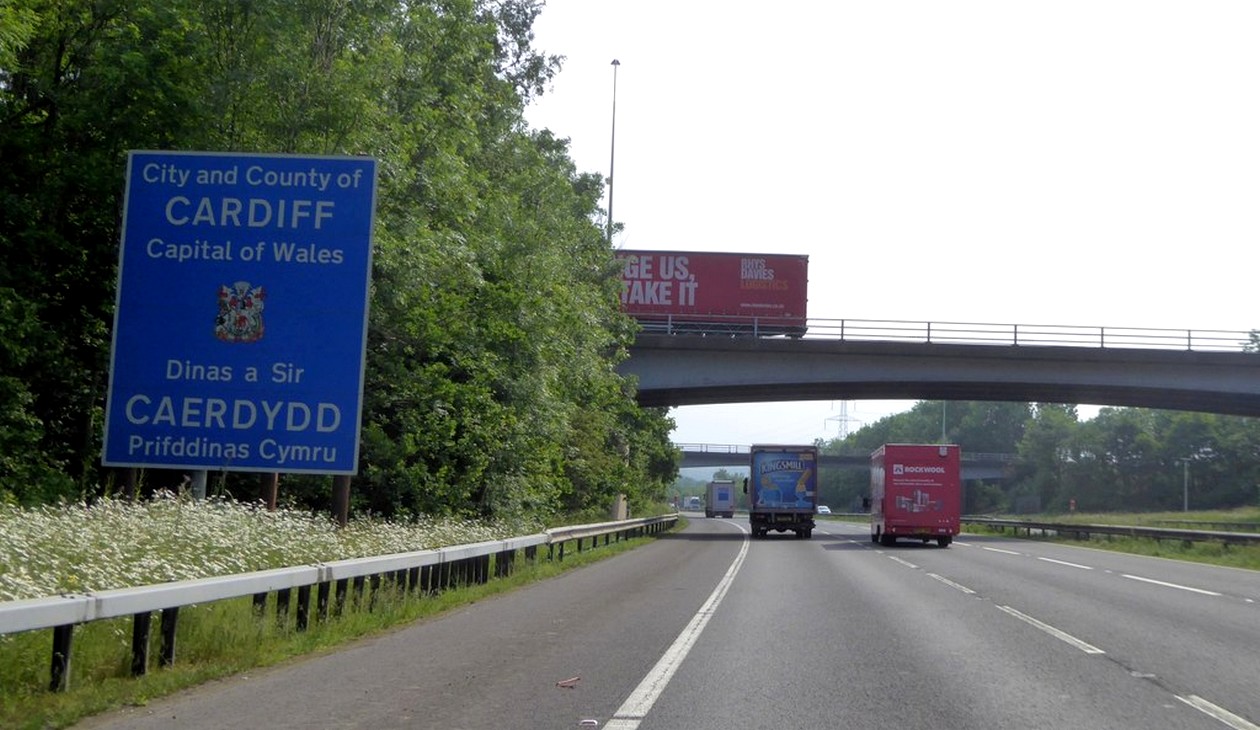Fragments of the aforementioned testimonies have been included in a recently published Welsh Parliament inquiry titled ‘HGV driver shortage and supply chain issues’.
Of the truck drivers who gave testimonies, 15 were current HGV drivers, with one being a former HGV driver. The interviewees’ driving experience varied from 2 to 30 years. All the drivers spoken to either held or had previously held a class 1 license.
The drivers were asked the following questions:
- Why is there a shortage of HGV drivers?
- Is it difficult to recruit HGV drivers? If so, why?
- Is it difficult to retain HGV drivers? If so, why?
- What do you think would entice HGV drivers back to the job?
- What do you think needs to be done to keep HGV drivers from leaving?
The answers then gave the committee the chance to hear the HGV drivers’ thoughts on the day-to-day problems many of our readers are unfortunately familiar with.
When it comes to cargo theft and a lack of secure parking, one lorry driver said:
“I’ve been robbed over 10 times. It’s a horrible thing to admit but you expect it. The last time they slashed three holes in the curtain big enough to drive a vehicle through, half my load was on the layby ready to be stolen. Even the police see it as an occupational hazard. As drivers we just accept it.”
Others said that they were forced to either pay for secure parking out of their own pocket or risk their load being stolen:
“Companies make it clear that they don’t want you to park overnight in the services, they don’t want to pay the money back. With the cost of fuel, truck maintenance, the expense to keep a truck on the road is unbelievable, so they actively encourage us not to park overnight in the services.”
When it came to describing the facilities at their disposal, which are themselves in short supply, drivers used words including “sh*t”, “atrocious” and „dirty”. One lorry driver added:
“I would never change from being a day driver to driving overnight, service station facilities are atrocious and the risk of being robbed when your parked overnight means I’d never consider it.”
On the subject of wages, many drivers also said that more needs to be done to keep people in the industry. One who gave a testimony said:
“I go out on a Sunday evening and come back on a Friday night, and I take home £800 a week. When you break that down it’s £10 an hour. Because you always do more hours than the Tachograph shows. On top of that, it cost me £150 a week to live on the road for food.”
As regards fines, one driver described VOSA as a “money making machine”, while another explained why he thinks drivers “can’t win”:
“I’ve been heading home with plenty of time to get back, I get stuck in traffic and now I’m stuck by Magor. I go over my drive time, so I get an infringement on my Tachograph and a £150 fine from VOSA unless I prove it. But I can’t prove it as I’m not allowed to use my phone. You can’t win you just have to pay it.”
CPC training was another common gripe, with one of the truckers interviewed calling for it go entirely:
“I think it should be scrapped completely. It’s a waste of time. There are boys that have been in the industry for 30 years who must sit in the classroom and be told how to do their job.”
Drivers were also asked for their “final thoughts” on the driver shortage and the profession of HGV driver in general. Quite a few of those interviewed did not hold back with their answers.
One trucker’s final thoughts were as as follows:
“It’s disgusting. We are treated like animals; no decent facilities, hours are very unsociable, no work life balance and most drivers end up divorced due to this fact. Management sit in their offices or at home during the pandemic, while we as drivers are at the front line. There is no respect towards us, we have to work for people that have never been in a lorry never mind drive one. The license and training is expensive, then CPC – what a waste of time 8 hrs in a classroom teaching your granny to suck eggs and for what? For a minimum wage and yet we’re still classed as unskilled even though we are driving a 44ton killing machine carrying everything anyone needs. Millions of pounds of goods a day, too many just out of college/University pen pushers telling us we a two penny and there’s plenty of people want your job. Large companies used to be dead man shoes to get jobs now they’re only interested in manager and shareholder bonuses. I could go on. Treat us with the respect we deserve and oak us what we deserve – remember who was out in the real world during the pandemic.”
Another said:
“There is a shortage due to long hours, anti-social hours, poor work-life balance, no family time, excessive weekend working, sh*t pay for the work and conditions we are expected to work in, poor management, bad management, ignorant management, management who do not understand the job as they haven’t done it, sh*t facilities whilst on the road, unrealistic target times, excessive red tape, lack of support from upstairs, sh*t pay, drawn-out pay negs which shows a total lack of respect and consideration for the workforce. Total disregard for drivers mental and physical health.”
After taking on board the driver feedback from these testimonies, the recommendations of the Welsh Parliament’s Economy, Trade and Rural Affairs Committee are as follows:
- Support for drivers to bring forward concerns and have their voices heard by their employer through employee committees.
- Operations should work primarily Monday to Friday, with additional pay for Saturday and Sunday hours.
- Removal of the 17-week reference block and ‘averaging’ of 48 hours. To be replaced with weekly or fortnightly rotas with a 48-hour working week cap.
- Transport managers responsible for planning driving routes should have an HGV driving licence and driving experience.
- More free and cheap off-road parking sites with access to toilets and rubbish bins.
- Safer off-road parking where drivers can park together and parking sites are monitored with CCTV.
- All rest stops and service stations to adhere to a facilities standard mark.
- HGV drivers to be included in the Blue Light Card discount scheme, or an equivalent discount scheme, to purchase food and drink.
- Decent incentives to compensate for working away from home
- A wage increase to reflect the responsibility and lifestyle.
- Update the current Driver Certificate of Professional Competence curriculum to be more relevant to the needs of drivers.
- Driver Certificate of Professional Competence course facilitators to be current or former HGV drivers.
- A government grant to support new drivers with initial set-up costs.
- A government funded or subsidised apprenticeship scheme for all new drivers.
- Learner drivers to learn about accommodating larger vehicles on the road and how to share the road safely with HGVs. This learning to form part of the highway code exam.
- A public information campaign to educate the public on driving safely to accommodate HGVs.
- Tax relief for HGV drivers, and those who worked throughout the pandemic.
- Support for drivers to bring forward concerns and have their voices heard by their employer through employee committees.
Photo © Copyright David Smith and licensed for reuse under this Creative Commons Licence





